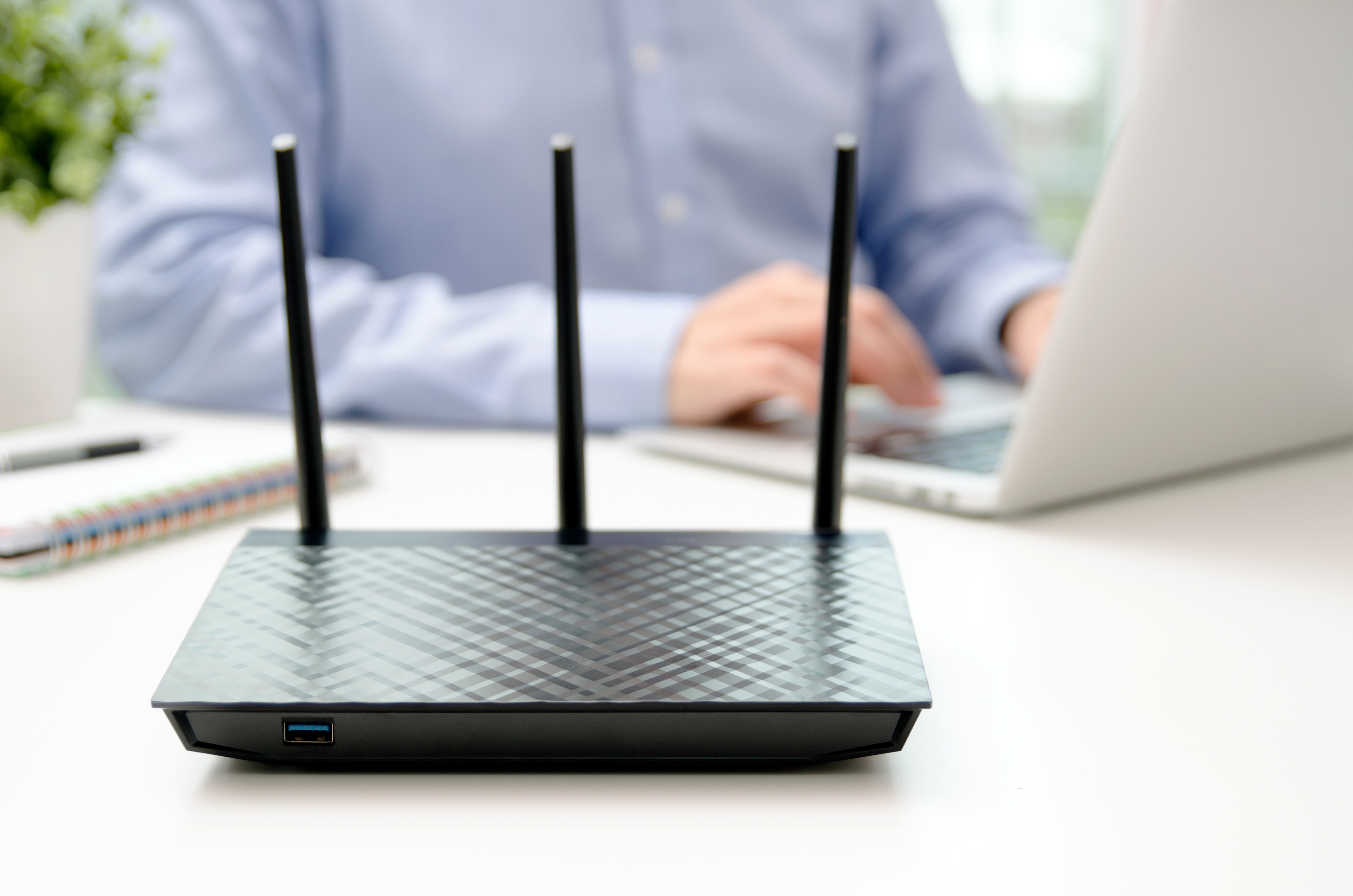Business networks have seen a major shift over the last several weeks. Due to the coronavirus pandemic, multiple IT Support company in the San Bernardino area and throughout California have had to send employees home to work remotely.
The transition to a remote workforce means that network security now extends to multiple employee homes. This includes residential routers, which are inherently less secure than routers designed for business use.
Attacks targeting routers increased 539% in 2018, and 5 in 6 routers are vulnerable to cyberattacks.
Whether at home or office, Wi-Fi networks rely on a router and those routers are often a target of hackers. If a hacker can breach the router, they then have an access point to all devices connected to that wireless network.
With employees working from home, that means that sensitive business data is being transmitted through home wireless networks. If the routers on those networks aren’t properly secured, it can lead to a data breach that impacts a business just as much as if it happened at the office.
Some of the dangers of home networks being used for business use include:
- Consumer-grade routers being less secure
- Work PCs sharing a Wi-Fi connection with higher-risk residential devices
- Weak passwords
- Firmware that isn’t updated regularly
- Router is outside a company’s office-based firewall
With the uncertainty about when stay-at-home orders will be lifted and when business will get back to normal, it’s important to ensure your business operations are as secure as possible. This means addressing any home router vulnerabilities with guidelines on how to mitigate IT security risks while working from home.
Steps to Take for a More Secure Home Wi-Fi Network
There are some simple steps that employees can take to increase the security of their home routers, which benefits everyone. These are especially important due to the increased attention being paid to residential networks by hackers who know they’re now widely being used for business purposes.
Here are some important tips to give your employees that will increase their router security and the security of your extended business network.
Update Router Firmware
Just like operating systems and applications, routers also need regular updates. Software for hardware devices is called firmware. These updates contain critical security patches for newly found vulnerabilities.
Too often, consumer routers go without needed updates because consumers aren’t aware that they need to check for and apply them regularly. Flaws are found often that leave networks vulnerable, such as one in March 2020 that put thousands of Netgear routers at risk of being hacked.
Users should log into their home router to check for updates regularly by attaching a computer or laptop to it with an ethernet cable to access its settings.
Ensure a Strong Router Password
Weak passwords are one of the main causes of data breaches. Just like any other type of login, a router password should also use best practices for strength and security.
Password best practices include:
- Ensuring the password is at least 10 characters long
- Using both upper and lowercase letters
- Using a combination of letters, numbers, and special characters
- Not using personally identifiable information (like a birthdate)
Use a Guest Network for Work Devices
If a hacker breaks into a doorbell security camera on a home network, they can then often discover other devices connected to that same network and hack those too.
Employees can add an additional layer of security by putting work devices on a different Wi-Fi than other internet-connected devices in the home.
This is done by creating a new guest network:
- Log into your router and set up a guest network
- Change the password to your existing network (to prevent automatic connections)
- Connect all work-related devices to the guest network and other devices to the preexisting network.
Enable Router Firewall If You Have One
Many home routers will have a basic firewall feature. While this isn’t as strong as a business-grade firewall, it offers some amount of security.
The firewall monitors network traffic and blocks anything that looks suspicious. It’s often on by default but should be checked just to make sure it’s enabled.
Turn Off Remote Access & UPnP
Some routers allow you to connect to them remotely rather than through an ethernet connection. This feature should be turned off because it can be exploited by hackers to gain access to a router.
Universal Plug and Play (UPnP) is a feature designed to make it easier for devices like smart TVs to access the web without going through configuration settings, but it can also be exploited by hackers.
Turning both these features off helps reduce the risk of a breach.
Get Help Securing Your Extended Business Network
If you’ve had to extend your business network to include multiple remote employees, Neuron Computers can help you ensure your data security is intact.
Contact us today to apply for a free cybersecurity audit. Call 1-833-4-NEURON or reach out online.


